Georgia Gosnell Seminar Series
The Georgia Gosnell Seminar Series showcases speakers with broad expertise across the life sciences who present ongoing research on topics that include ecological sustainability, education, evolution, genomics, pathogenesis, proteomics, and viral therapeutics.
Join us for our upcoming seminar!
Bacteria host replicating RNA plasmids
Friday, April 11
1:00 - 1:50 PM
Gosnell A300
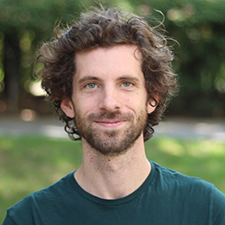
Andrew Varble, Ph.D.
(RIT Biotechnology '08)
Assistant Professor
Department of Microbiology and Immunology
University of Rochester School of Medicine
A new class of RNAs, termed Obelisks, have been discovered in metatranscriptomic data. The fundamental aspects of their replication, host range, and impact on their bacterial host remain unknown. We have established a reverse genetics system to reconstitute these RNA species in bacteria. Our findings demonstrate that they stably persist and replicate in multiple bacterial species and their presence leads to upregulation of bacterial pathogenesis factors and suppression of prophage induction. This work establishes the foundation for understanding these plasmid-like RNAs, whose existence challenges and expands the current paradigm of bacterial selfish genetic elements.
To request interpreting services, visit www.myAccess.rit.edu
Seminars for Spring 2025
Leveraging students’ and instructors’ beliefs about students’ abilities to improve biology undergraduates’ outcomes
Monday, April 14
1:00 - 1:50 PM
Gosnell A300

Lisa Limeri, Ph.D.
Assistant Professor
Texas Tech University
Students’ beliefs about their abilities shape their motivations, engagement, responses to failure, and ultimately their academic outcomes. In this seminar, I will describe 3 studies focused on leveraging these effects to improve student outcomes. I will describe the development of a new measure of undergraduates’ beliefs about their abilities, a field trial of interventions to improve student outcomes in introductory biology classes, and results of a qualitative study exploring the mechanisms through which instructors communicate their beliefs about students’ abilities in the classroom through their words, actions, and policies. These results shed light on how instructors can shape their classroom climates to support positive beliefs and students’ resilience.
To request interpreting services, visit www.myAccess.rit.edu
GSoLS Student Seminar
Monday, April 21
1:00 - 1:50 PM
Gosnell A300

Katherine Palmatier ’26
Biotechnology and Molecular Bioscience
“Revisiting protein glycosylation in Pseudomonas aeruginosa reveals distinct phenotypes in motility and biofilm formation for different O-glycosylation pathway mutants”

Maleah Sena ’26
Biotechnology and Molecular Bioscience Biochemistry
“Impact of Salt Stress on Growth and Astaxanthin Production in a Suite of Algae within the Scenedesmaceae”
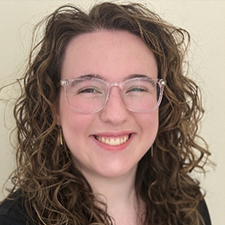
Caitlin Morrison ’26
Biotechnology and Molecular Bioscience
“Unraveling the diversity of biological soil crusts”

April Soule ‘25
Biology
“The Physiological Role of a Lake Ontario Stopover Site for Swainson’s Thrushes”
To request interpreting services, visit www.myAccess.rit.edu
To be or not to be orange: Discovering carotenoid genes in crops
Monday, April 28
1:00 - 1:50 PM
Gosnell A300

Emalee Wrightstone
(RIT Biotechnology '21)
Ph.D. Candidate
Plant Breeding and Genetics
Cornell University
Cucurbita sp. squash fruits are highly rich sources of carotenoids which are essential to human nutrition. In Cucurbita maxima squash, the Bmax locus is a crucial gene controlling fruit carotenoid accumulation and has high potential in commercial orange squash cultivation. My work seeks to confirm and uncover how Bmax promotes carotenoid accumulation. Identification of Bmax provides breeders with a novel genetic tool for advancing carotenoid biofortification in crop plants.
To request interpreting services, visit www.myAccess.rit.edu
Past Seminar Speakers
Enhancing VSV for Oncolytic Virus Therapy: A Transcriptomic Approach to Decipher Primed Resistance by Some Prostate Cancer

Alaa Abdelmageed Ahmed
(RIT Biotechnology '20)
Ph.D. Candidate
Genetics
University of Rochester
GSoLS Graduate Student Seminar
Impacts of permafrost thaw on methane cycling and emission in a Northern Peatland

Hannah DeFelice
Environmental Science (BS '24, MS '25)
Green microbial communities, physiology, and stress response in retention ponds in the Lake Ontario watershed

Francesca Molee
Environmental Science (BS '25, MS '26)
Bad to the Bone (Marrow): Macrophages in Leukemia

Benjamin Frisch, Ph.D.
Assistant Professor of Pathology
University of Rochester
School of Medicine and Dentistry
Partners in Crime: Hydrosphere-Pathobiome of Fusarium Wilt

Sanjay Antony-Babu, Ph.D.
Assistant Professor
Texas A&M University
Bad Blood (feat. organ-on-chip): Recreating the bone marrow in the lab to study acute myeloid leukemia

Azmeer Sharipol ('17 biotechnology)
Ph.D. Candidate and NCI F99 Fellow
Biomedical Engineering
University of Rochester Medical Center
An adventure in molecular-scale bio-musicology

Greg Babbitt, Ph.D.
Associate Professor
Thomas H. Gosnell School of Life Sciences
Rochester Institute of Technology
Quality Control to Find Hidden Genomic Gems in Vitis

Michael Osier, Ph.D.
Associate Professor
Thomas H. Gosnell School of Life Sciences
RIT
Smash the Crash: An Interdisciplinary Initiative to Study and Prevent Bird-Window Collisions
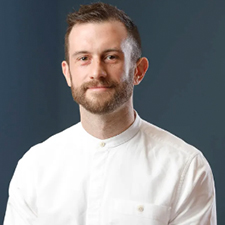
Richard Fadok, Ph.D.
Postdoctoral Fellow
Humanities Center
University of Rochester
Humanizing biology to promote equity in STEM education

Robin Costello, Ph.D.
Assistant Professor
Department of Biological Sciences
University at Buffalo
Organismal plasticity in the colors and behaviors of an African cichlid fish
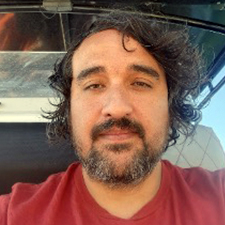
Sebastian Gaston Alvarado, Ph.D.
Assistant Professor
Queens College
City University of New York
Genetic Engineering Techniques to Study and Enhance Crop Plant Systemic Acquired Resistance
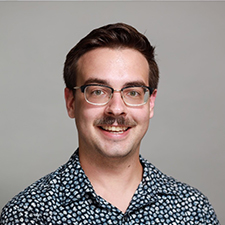
Benjamin Merritt
University of Florida
Parents, porches, and Pb policy: Cycles of engagement and research
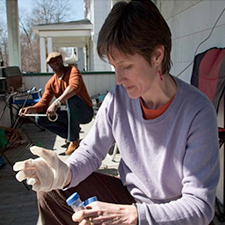
Katrina Korfmacher, Ph.D.
Professor of Environmental Medicine
Director of Community Engagement
Environmental Health Services Center
University of Rochester
Combining isotopic and molecular approaches to understand patterns of methane emissions across high latitude peatlands
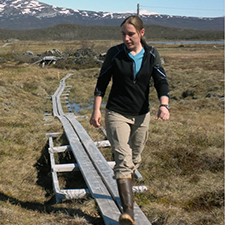
Carrie McCalley, Ph.D.
Associate Professor
Thomas H. Gosnell School of Life Sciences
Rochester Institute of Technology
The Peculiar Lifestyle of an Important Opportunistic Fungal Pathogen
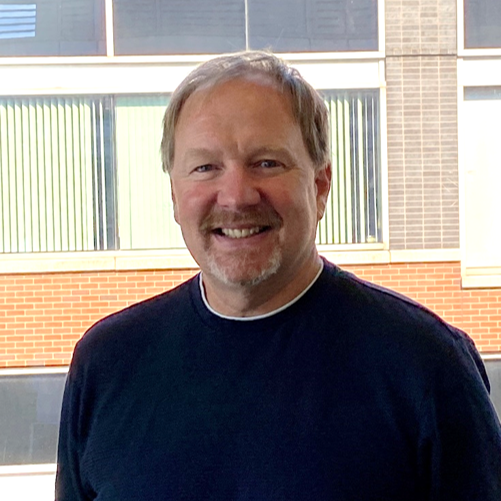
Terry Wright, Ph.D.
Pediatrics Infectious Disease and Microbiology and Immunology
University of Rochester Medical Center
Breaking the Silence: Interaction of Acinetobacter sp. RIT 592 induces the production of broad-spectrum antibiotics in Exiguobacterium sp. RIT 594
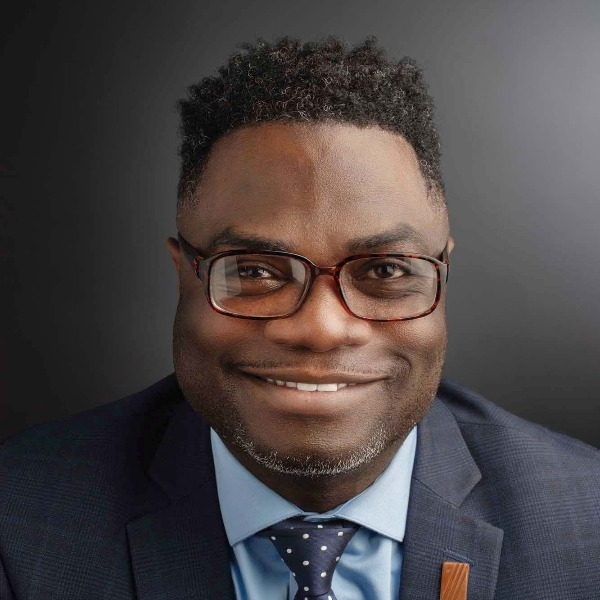
André Hudson, Ph.D.
Dean and Professor
College of Science
Rochester Institute of Technology
Microbiological predictive modeling for food safety risk assessment: State of the art and way forward

Nurul Hawa Ahmad '10, Ph.D.
Senior Lecturer
Food Science and Technology
Universiti Putra Malaysi
A bubbling cauldron of antibiotic resistance: Commensal Neisseria, a persistent threat for DNA donation to important human pathogens
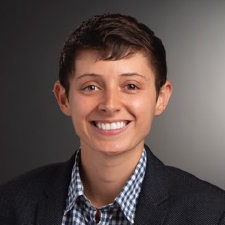
Crista Wadsworth, Ph.D.
Assistant Professor
Thomas H. Gosnell School of Life Sciences
RIT
Can I Borrow a Gene?
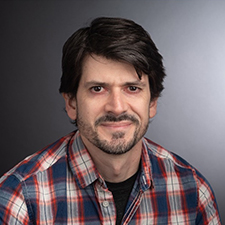
Fernando Rodriguez, Ph.D.
Research Scientist
Thomas H. Gosnell School of Life Sciences
RIT
Student Seminar: "What I did this summer" (Part 2)
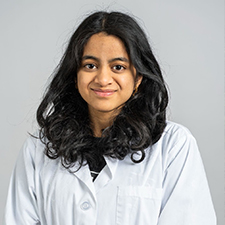
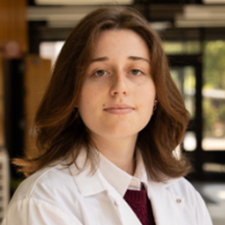
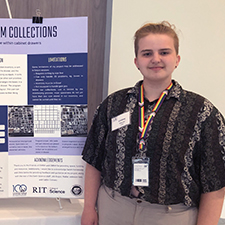
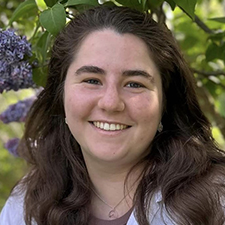
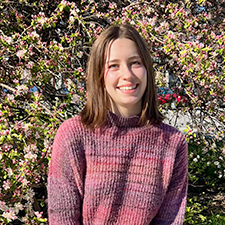
Student Seminar: "What I did this summer" (Part 1)
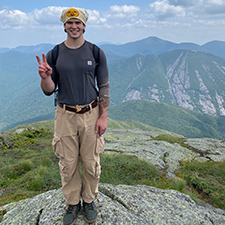
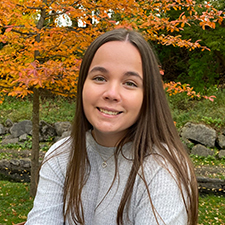
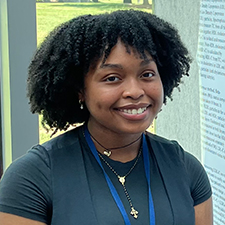
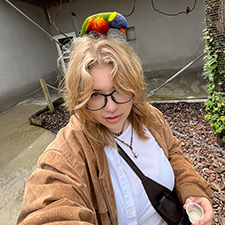
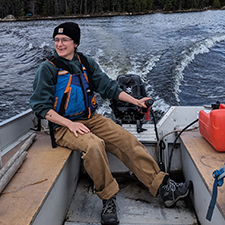
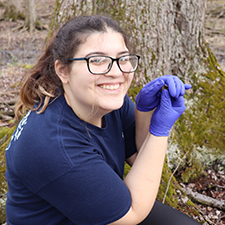
GSoLS Student Seminar

Skye Bixler ’24 BS / ’25 MS (biotechnology BS / bioinformatics MS)
“Understanding how the Vesicular Stomatitis Virus matrix protein blocks cellular translation using Comparative Molecular Dynamics”

Zack Black '24 (biotechnology)
“NFkB is not solely regulated by the matrix protein in prostate cancer cells that resist VSV oncolysis”

Aneesh Nallani '24 (biology)
“Demystifying ATP Hydrolysis”

Jack Smerczyski '24 (biotechnology)
“NFkB is not solely regulated by the matrix protein in prostate cancer cells that resist VSV oncolysis”

Shreya Sujith ’25 (biotechnology)
“Demystifying ATP Hydrolysis”

McKenzie Watts '25 (biotechnology)
“Biological characterization of novel tanzawaic acid bacterial conjugation inhibitors”
From Bench to Bedside: Developing a novel therapeutic against the deadly brain eating amoeba Balamuthia mandrillaris

Kaitlin Marquis, Ph.D. '15 (biotechnology)
Scientist
Chan Zuckerberg Biohub Network
Unlocking the Genetic Repertoire of a Cultivated Megaphage

Richard Allen White III, Ph.D.
Assistant Professor
Bioinformatics and Genomics
University of North Carolina at Charlotte
T Cell Immunometabolism in Function and Disease

KayLee Steiner (Biotechnology ’20)
Ph.D. Candidate
Cancer Biology
Vanderbilt University
Living on the edge: Pollinating insects and plant communities along highways

Kaitlin Stack Whitney, Ph.D.
Assistant Professor
Department of Science, Technology, & Society
Rochester Institute of Technology
Building Quantitative Skills in Biology Students

Melissa L. Aikens, Ph.D.
Associate Professor
Department of Biological Sciences
University of New Hampshire
Co-sponsored with the Center for Advancing Scholarship to Transform Learning (CASTLE).
Advanced Cryotechnologies for Conservation: Ethics and Justice Considerations

Evelyn Brister, Ph.D.
Professor of Philosophy
Rochester Institute of Technology
Coastal Wetlands in a Changing World: Impact on carbon sequestration and greenhouse gas release

Inke Forbrich, Ph.D.
Assistant Professor
University of Toledo
Determining the socio-ecological impact of field station conservation initiatives

Sydney VanWinkle, M.S. (RIT '19 '21)
Fulbright U.S. Student Fellow
Madagascar Researcher
Biology Without Walls: Student Research Presentations

Microbial Assembly: Using ecology to deconstruct pandemics and build healthy amphibian microbiomes

Dr. Elle Barnes
Assistant Professor
RIT Thomas H. Gosnell School of Life Sciences
New Strategies for Antibiotic Dosing in the Age of Multidrug-Resistance

Zackery P. Bulman, PharmD
Assistant Professor
University of Illinois Chicago
College of Pharmacy
The Green Diversity Under Our Feet: Secrets and Surprises of Green Microalgae

Dr. Elena L. Peredo
Assistant Professor
Thomas H. Gosnell School of Life Sciences
Understanding Learning Strategies and Metacognition in Genetics Students

Dr. Jenny Knight
Associate Professor
Molecular, Cellular & Developmental Biology
University of Colorado Boulder
Understanding and Modulating Immune Responses to Adeno-associated virus (AAV) Gene Therapy

Dr. Allison Keeler-Klunk
Assistant Professor
Horae Gene Therapy Center
University of Massachusetts
Chan Medical School
ATOMDANCE: machine learning denoising and resonance analysis for functional and evolutionary comparisons of protein dynamics

Dr. Greg Babbit and Dr. Maureen Ferran
RIT Thomas H. Gosnell School of Life Sciences
GSoLS Student Seminars: What I did this Summer
Part 2
- Hannah DeFelice participated in an REU at the University of New Hampshire. As part of the program, Hannah traveled to norther Sweden to perform vegetation assessments and collect pore water samples in an area of permafrost transition/thaw. Her results showed considerable change in vegetation cover, pH, and methane concentrations between 2015 and 2023.
- Sydney Purcell conducted research at RIT in Dr. Ferran's viral genetics lab. She focused on using targeted molecular imaging agents to image breast cancer cells and infecting C. elegans with VSV to overexpress a specific gene. Zak Azad conducted research in Dr. Thomas' lab at RIT. The research project focused on optimizing parameters that impact phage growth and yield.
- Tori Russell was involved in several research projects in Dr. Ferran's lab at RIT, including a mechanobiology project, a breast cancer imaging project, and a C. elegans/VSV project.
- Maggie Muldoon participated in the RIT Wetlands REU, with her research project focusing on the impact of the Emerald Ash Borer on bird species and habitat in forested wetlands.
Part 1
- Natalie Siwek completed a co-op with VHB, a company that specializes in civil engineering, urban planning, and environmental consulting. She supported the Natural Sciences team by assisting with wetland delineations, rare species surveys, construction compliance inspections, permit application preparation, and data collection and synthesis.
- Leah Robinson was part of an NSF EFRI REM program in the Material Science and Engineering Department at the University of Michigan, researching how organic vapor jet printed active pharmaceutical ingredients impacted the cell growth and viability of ovarian cancer cell spheroids.
- Zach Black spent the summer doing research at RIT in Dr. Ferran's viral genetics lab. He worked on optimizing two transfection reagents and determined whether transfecting cells activates NF-kB, with the goal of understanding NF-kB regulation in human prostate cancer cells.
- Katie Chrisbacher had an Emerson research fellowship at RIT this summer and completed research in Dr. Skuse's lab. She worked on a chemotherapeutic rhodcyanine dye, MKT-077.
GSoLS Student Seminar: “Closing the gap on sources and sinks of anthropogenic debris across an urban to rural gradient in the Great Lakes Basin”

Speakers:
Paige Arieno ‘23 BS, ’24MS
Evan Batte ‘23 BS, ‘24 MS
Nikki Fuller, ’24 MS
Jayson Kucharek ‘23BS, ‘24 MS
Environmental Science
“Pairing is Sharing: Critical thinking improves when working in pairs”

Speaker:
Sam Conflitti '23
Biotechnology and Molecular Bioscience
“Isolation, Whole-Genome Sequencing, Annotation and Characterization of Two Antibiotic-Producing and -Resistant Bacteria, Pantoea rodasii RIT 836 and Pseudomonas soli RIT 838, Collected from the Environment.”

Speaker:
Serena Tuytschaevers '25
Bioinformatics and Computational Biology
"Unveiling the Signaling Pathways of Mother of Millions, an emerging Crassulacean Acid Metabolism (CAM) model”

Speaker:
Shui Li Eu-Balint '24
Biology
Dr. Jacqueline Clark Ludwig, RIT: Can moth muscles make robots move? Examining metamorphosis in the tobacco hawkmoth to identify tissue engineering targets

Speaker:
Dr. Jacqueline Clark Ludwig
Inclusive Excellence Program Manager
RIT
Dr. Farid Halim: Unraveling the Role of Formate Dehydrogenase in Methanogenesis: Insights into Microbial Energy Metabolism

Speaker:
Dr. Farid Halim '10 (biotechnology)
Postdoctoral Research Associate
University of Minnesota
Dr. Andrew Newhouse: Using Genetic Engineering to Rescue Threatened Native Trees

Speaker:
Dr. Andrew Newhouse
American Chestnut Research and Restoration Project
SUNY ESF
Trevor Penix: Applied Biomedical Genomics and Bioinformatics at the Genomics Research Center

Speaker:
Trevor Penix (Biotechnology ’20)
Ph.D. Candidate
St. Jude Graduate School of Biomedical Sciences
St. Jude Children’s Research Hospital
Melissa Duhaime

Speaker:
Melissa Duhaime
Assistant Professor
Department of Ecology and Evolutionary Biology
University of Michigan
Elizabeth Pritchett and Dr. Dalia Ghoneim: Applied Biomedical Genomics and Bioinformatics at the Genomics Research Center

Speakers:
Elizabeth Pritchett, Operations Director
Dr. Dalia Ghoneim (bioinformatics '07)
Genomics Research Center
University of Rochester
Erik Dopman: Genetic causes and population consequences of behavioral and life history evolution
Speaker: Erik Dopman
Tufts University
Shawn Fahl: Applications of Cryopreserved Human Dissociated Tumor Cells (DTCs) for Drug and Diagnostic Development
Speaker: Shawn Fahl '05 (biotechnology)
Vice President of Lab Operations, Cell Services, and R&D, Discovery Life Sciences
Dr. Julie Thomas, RIT: Building on “déjà vu” to understand giant phage head assembly and function

Speaker: Dr. Julie Thomas, Associate Professor
RIT Thomas H. Gosnell School of Life Sciences
Dr. Daniel Grunspan: Biases and Partnerships: Learning from Student Social Networks

Speaker: Dr. Daniel Grunspan, Assistant Professor
Department of Integrative Biology, University of Guelph
Douglas Lyles: Trafficking of viral ribonucleoproteins in the cytoplasm of host cells

Speaker: Douglas Lyles, Professor of Biochemistry
Wake Forest School of Medicine
GSoLS Faculty Slide Slam

Speaker: GSoLS Faculty Slide Slam
Thomas H. Gosnell School of Life Sciences, RIT
Stefan Schulze, RIT: Comprehensive prokaryotic glycoproteomics: challenges, solutions, and their application to pathogenic bacteria

Speaker: Stefan Schulze, Assistant Professor
Thomas H. Gosnell School of Life Sciences, RIT
Dr. Girish Kumar: Impact of extraction methods, filter pore sizes, and primers on eDNA metabarcoding results

Speaker: Dr. Girish Kumar, Genomics Research Associate
Thomas H. Gosnell School of Life Sciences, RIT
Dr. Leslie Kate Wright, RIT: Representations and Visualizations in Molecular Biology

Speaker: Dr. Leslie Kate Wright
Professor and Interim Head of Thomas H. Gosnell School of Life Sciences






